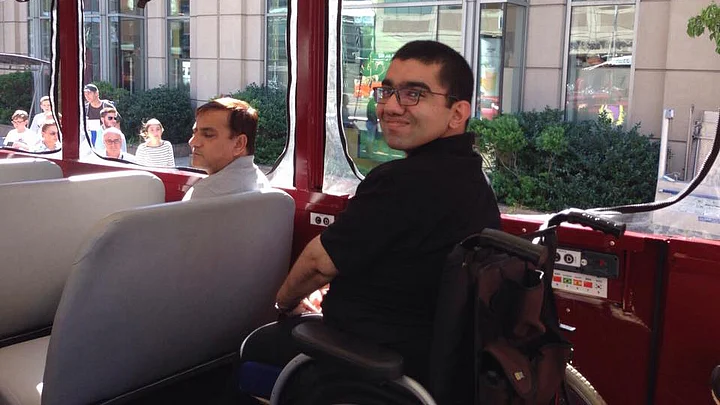It was in the year 2011-12, my second year at the Delhi School of Economics (DSE), that I decided to sit for placements in the corporate sector. Having studied at St Stephen’s and having got into the DSE with a nationwide 52nd rank, I entered the placement process with great anticipation.
However, hope for a good placement was a bubble that didn’t last too long – I was soon a witness to the discrimination persons with disabilities face while trying to find employment. A leading corporate rejected me due to the lack of a disabled-friendly toilet after making me go through seven rounds of interviews (despite my attempts to convince them that I have good control over my bladder!). I also went through interviews where I was questioned on whether I had ever read a book in my life; while common sense eventually prevailed that I had, in fact, read a book, corporates consistently found creative ways to reject me.
It was these rejections in life that inspired me to start the Nipman Foundation. I felt that coming from a position of strength with my own foundation I could bring about a change in society. Last year we instituted the Nipman Foundation Equal Opportunity Awards that recognise companies and institutions that promote employment of persons with disability. A completely independent jury selects the awards winners. These awards have given us an opportunity to highlight some great examples of companies that promote diversity and inclusion. Restaurants are not far behind too; Yum Foods have 20 restaurants in twelve cities in India that are run by over four hundred speech and hearing-impaired team members.
Over the last one year, I have also had the opportunity to work with Zomato to add wheelchair-access filters to restaurants, OML to make the NH7 Weekender accessible, and most recently I successfully lobbied with Uber to launch UberASSIST, India’s first radio paratransit service for the disabled.
However, these are just exceptions to the norm – islands of California in a Sub-Saharan Africa.
With only 34 percent of India’s disabled population employable and 49 percent literate, we have a long way to go before India becomes an all-inclusive country for the disabled.
It is great that Prime Minister Narendra Modi is launching the Accessible India Campaign later today. But in a country heading towards ‘Less Government, More Governance’, true inclusion would only take place if the private sector is taken along and encouraged to employ those who are disabled. After all, while some of us might be physically disabled, we are ‘differently abled’ too – as some manufacturing companies have realized by hiring hearing impaired employees who are actually better off on shop floors than the more ‘able bodied’!
(Nipun Malhotra is co-founder and CEO of Nipman Foundation. He can be followed on Twitter at @nipunmalhotra)
(At The Quint, we question everything. Play an active role in shaping our journalism by becoming a member today.)
